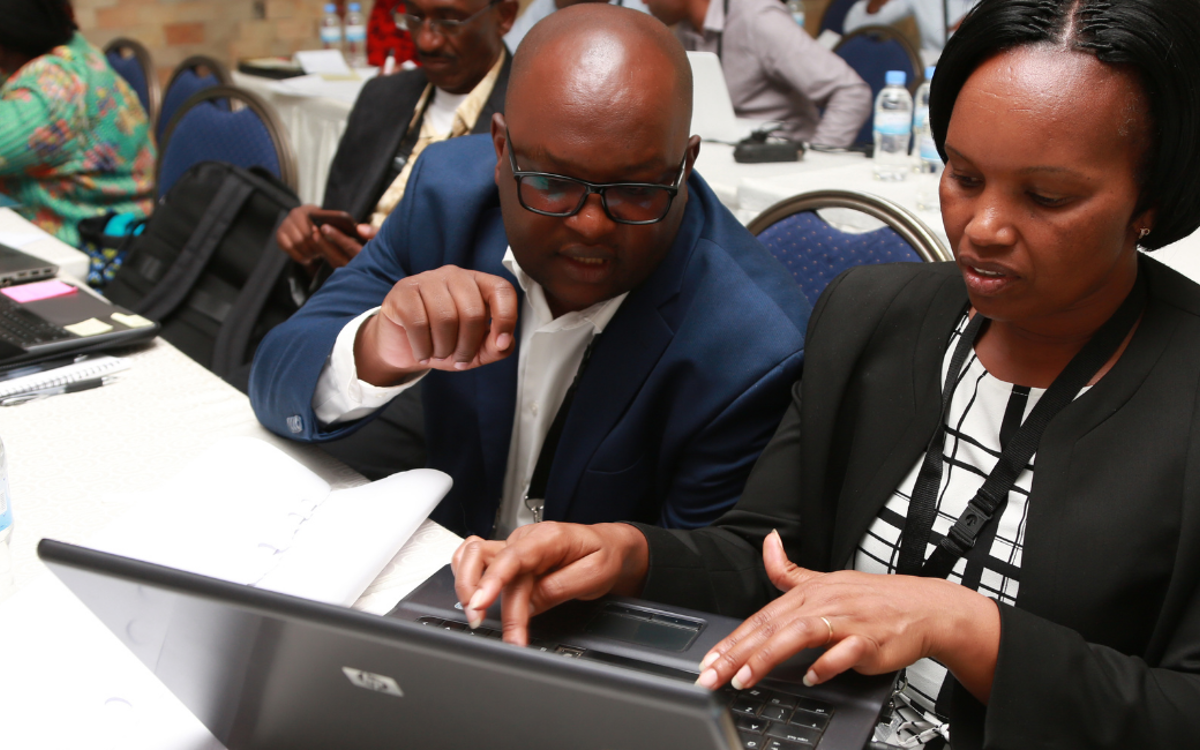A unique initiative to fortify the design and delivery of enhanced blended learning courses and seed innovation in university teaching.

An increasing number of African universities are experiencing growing teaching burdens due to rapidly rising student populations and academic staff shortages, resulting in adverse impacts on teaching quality and the student experience.
Blended learning – a combination of face-to-face and online learning – offers a promising approach to address this challenge. However, blended learning uptake is a complex process that presents many challenges, particularly for institutions already facing staff shortages.
The Partnership for Enhanced and Blended Learning (PEBL) was originally established in East Africa. Bringing together 23 East African universities and technical partners based in the UK and Canada, and supported by UK FCDO's SPHEIR programme, it was a unique partnership designed to rapidly, and sustainably, scale up capacity for blended learning design and delivery. The project supported participating universities to develop, deliver, and share blended content - and enhanced the expertise of academic staff to successfully implement the blended learning models.
PEBL East Africa established a solid foundation for new programmes to grow, such as PEBL West Africa.
The success of the Partnership for Enhanced and Blended Learning (PEBL) comes down to its people. Read our stories to discover how the leaders and advocates of PEBL East Africa supported the digital transformation of teaching and learning within their universities.


PEBL academics have designed and developed a series of quality-assured, credit-bearing blended modules now available on OER Africa for universities within and beyond the project network to download and use.
These modules, covering topics in ICT, health and applied sciences, education and business, have been used by lecturers at PEBL institutions to complement traditional face-to-face teaching and assessment methods in the classroom, and expand the range of courses offered to students enrolled in taught undergraduate and postgraduate degree programmes.
Currently, over 11,000 students are benefitting from PEBL modules to build their skills.

PEBL has given us access to immense resources that are helping us overcome varied challenges in our shift towards blended learning. Hitherto, our courses have been mainly face-to-face with very limited internal capacity to even think of transitioning to blended learning. The support structures in the project, as well as the collective learning across the partnership, have been invaluable to us. The capacity being built in us will tremendously help us transition to a campus that is more responsive to the learning needs of modern-day students."











